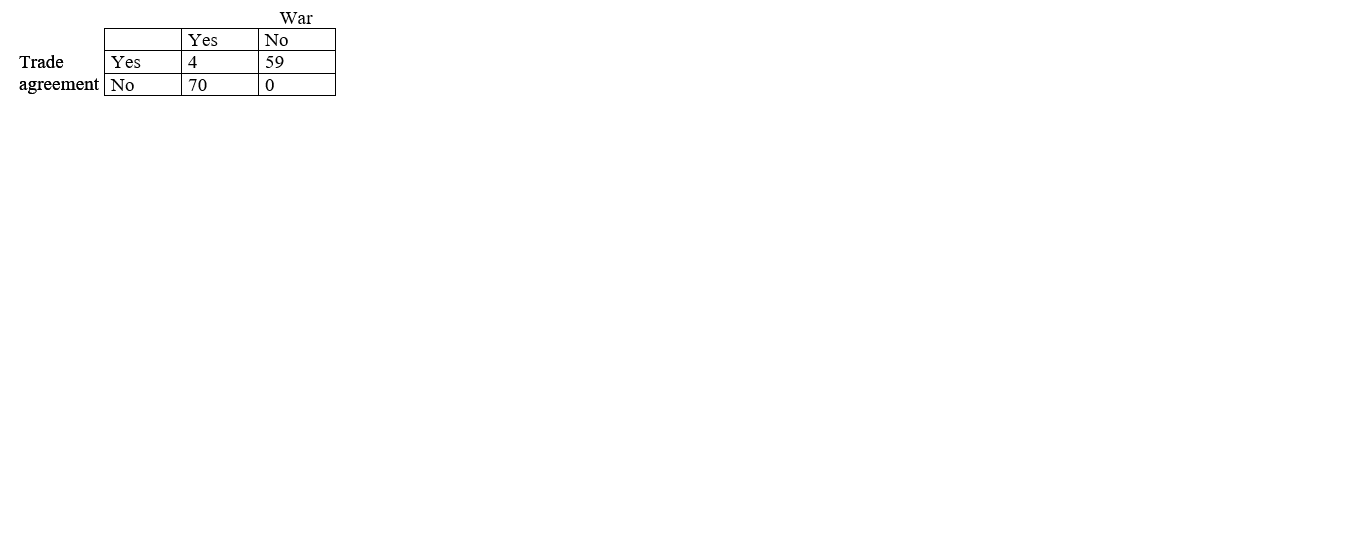Which of the following is not generally a problem with foreign policy decision making?
a. Groups of like-minded people trying to solve the same problem can disagree on the best course of action.
b. People make foreign policy decisions in conditions of incredible stress.
c. Information is often at a premium and some things cannot be known in advance.
d. Chief executives often have only one course of action to choose from.
d
You might also like to view...
Suppose we want to test the relationship between trade agreements and wars. The following data were collected. According to these hypothetical data, trade agreements are _______________________ for preventing wars.

a. necessary
b. sufficient
c. necessary and sufficient
d. neither necessary nor sufficient
Early in the 20th century, __________helped children remain in their own homes when their mothers faced economic hardship
a) Mothers' aid b) Homeless hardship fund c) Road-to-recovery d) Children's aid
The U.S. and China are unlikely to use economic interdependence as a weapon against each other because __________
a. both countries have large militaries, and have built alliances against each other, suggesting that military globalization or interdependence affects economic interdependence here b. the countries would be likely to face strong sanction from the World Trade Organization (WTO) should they attempt to launch a trade war c. their economic interdependence is asymmetric, which often means that what is bad for one economy is also bad for the other d. the countries are too economically important to the rest of the world now, given their central role in the current globalized economy
If political parties had their way, their presidential nominating conventions would closely resemble __________
a. barroom brawls b. coronations c. chess matches d. bingo games